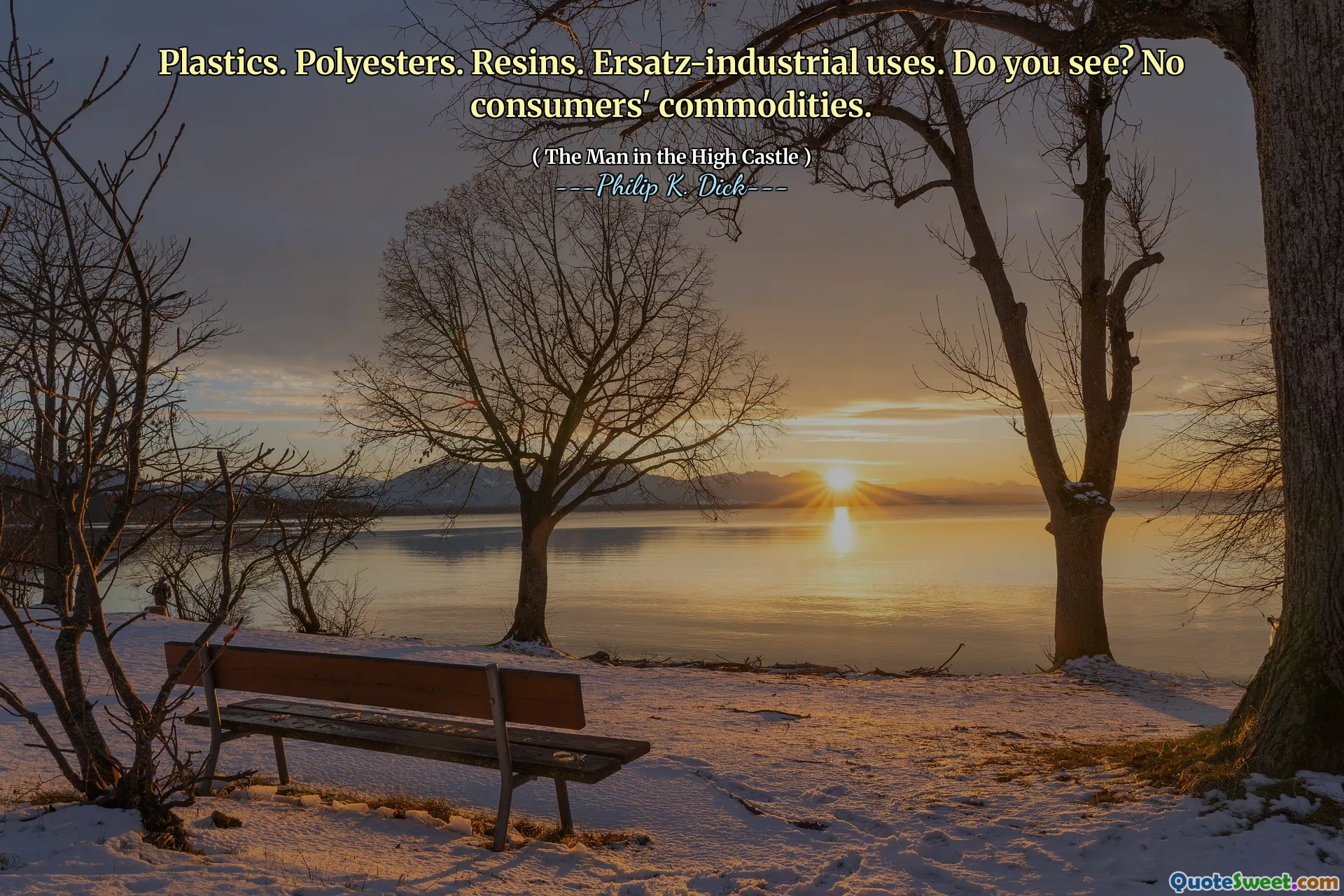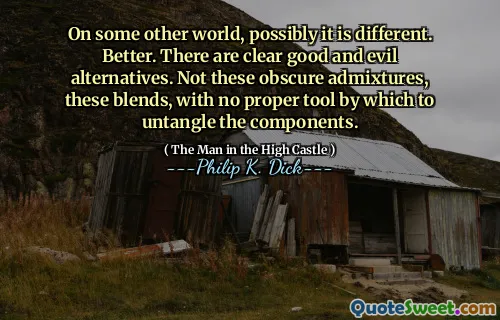
Plastics. Polyesters. Resins. Ersatz-industrial uses. Do you see? No consumers' commodities.
In Philip K. Dick's "The Man in the High Castle," the narrative touches on the theme of artificiality and the decline of genuine consumer products in a world shaped by alternative histories. The mention of materials like plastics, polyesters, and resins emphasizes a society primarily reliant on synthetic and ersatz items rather than authentic goods, reflecting a dystopian reality where the essence of consumer culture is lost.
This focus on artificial materials mirrors broader concerns about the consequences of industrialization and mass production. The lack of true commodities suggests a profound disconnection from the values of quality and craftsmanship, highlighting the emptiness of a lifestyle dominated by manufactured goods devoid of real significance.






